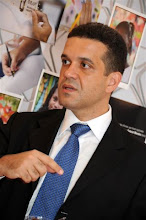- Back to Home »
- Brazil innovation and environment
Since the 70s, environmental movements have discussed the impact of technological advance upon the planet ecosystem. With notions such as environmental impacts and risks in mind, environmental sociology has pointed out many effects of modern technologies on environment, mostly in a technological phobic manner and a defensive way. From the perspective of innovation, environment challenges are pure fuel to propel new different technologies. Instead of focusing on specific technologies and immediate effects, innovation provides a broader and systemic view on technological practices.
The substitution of CFC on chemistry industries and consummer goods in Brazil is a good example. The importation of gas CFC and the use of herbicide bromide of metila, two of the main substances that destroy the ozone layer, are forbidden in Brazil since the first day of 2007 by the Brazilian National Environment Council (Conama).
Currently, the CFC survives basically in old equipment, refrigerators, residential and automotive air-conditional equipment. The CFC alone only leaves the industrial plant, today, in the cases of "essential uses", as in the bomblet used in the treatment of the asthma. It is an exception in the Montreal protocol, but its use is restricted and can finish for complete, therefore a study government foresees the substitution to it of the CFC of the bomblets for another product researched in the program of Elimination of the Production and Consumption of the Substances that Destroy the Ozone Layer. The Program counts on financial resources of Protocol Multilateral Fund, that, until 2010, will invest USS 26,5 million in brazilian system of innovation.
The CFC of old equipment, as what it puts into motion refrigerators manufactured before 2000 (the posterior ones does not contain CFC), the call "cooling gas", will be recicled to keep in operation old equipment. With resources of Multilateral Fund, a Central office of Regeneration (bank of supply of the gas) was mounted in São Paulo. In 2007, another one will be opened, in Rio de Janeiro. One program of training of "refrigeristas" prepares low-income people who work in the collect of the CFC in refrigerators. Instead of liberating the gas for the atmosphere, them they direct to a regeneration central office.
Such policies are the building blocks of democratic and decentralized social and technological networks and efficient and multiple innovation environments represent today essential conditions for environmentalism.












